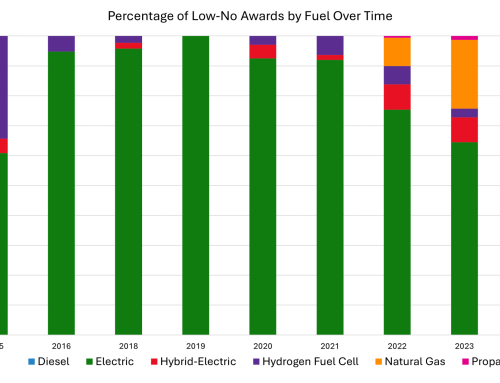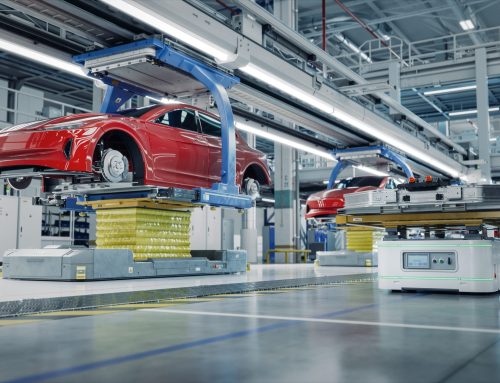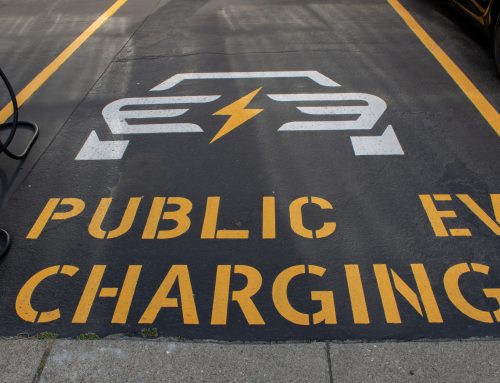
Source: EV Hub
We are happy to launch our dashboard redesign on the EV Hub with the just released Automakers Dashboard. With the support of the Natural Resources Defense Council (NRDC), this dashboard integrates new research with existing EV Hub data you are used to seeing in the National EV Sales and State EV Sales and Model Availability Dashboards to create an improved user experience. The Automakers Dashboard now allows you to track EV sales by automaker, existing and upcoming models, and automakers positions on key policy issues.
One of the new types of data presented in the dashboard tracks investment commitments related to EV manufacturing at specific facilities in the United States. Note, we’re not tracking the entire EV supply chain with this effort. We’re only tracking activity by the automakers, some of whom operate their own battery facilities. We found that more than $21 billion has been committed by automakers to upgrade or construct passenger EV manufacturing operations in 24 facilities across 10 states. Ford was the most recent company to announce EV manufacturing investment, announcing on September 16th a commitment of $700 million to build the upcoming all-electric F-150 pickup at a new EV facility in Dearborn, Michigan. Tesla, which claimed 70 percent of all EV sales in the first half of 2020, has committed to the most manufacturing investment with $9 billion. This number will rise as additional investment associated with Tesla’s newest Gigafactory in Austin, Texas is announced. In addition to state-specific manufacturing commitments by automakers themselves, automakers and battery suppliers have pledged $66 billion to EV investment in the United States.
Many of these investment commitments include job creation estimates, which are also tracked in the Automakers Dashboard. U.S. EV manufacturing is expected to support at least 38,000 existing and upcoming jobs. Tesla leads on this metric as well, employing 17,000 people at their existing Gigafactories in Fremont, California and Reno, Nevada. We estimated a similar magnitude of employment for the planned facility in Austin, which will be the headquarters of the Cybertruck. Aside from Tesla, EV manufacturing is concentrated in the Midwest and Southeast. Midwestern giants GM and Ford, as well as startups like Rivian and Lordstown Motors, have pledged to support more than 6,400 EV jobs across 12 facilities in the region. Foreign automakers are more prevalent down South and companies including BMW, Daimler, Nissan, Volkswagen, and Volvo have committed to expand EV operations supporting more than 3,200 EV and battery manufacturing jobs in the region.
All of this investment is positioned to support a wave of new EVs expected in the coming years. The Automakers Dashboard allows you to track release dates and specifications of all anticipated EVs in the United States and some international markets. In the United States, more than 62 new EVs are expected to hit the market in the next two years. This includes at least 55 new all-electric vehicles with an average combined range of 287 miles on a single charge. European automakers lead the charge with 10 of the planned 62 EV models coming from Volkswagen AG’s leading brands of Audi, Porsche, and Volkswagen. Mercedes-Benz and BMW account for another nine planned models. In general, the upcoming EVs are dominated by larger vehicles including crossovers, SUVs, and pickup trucks. At least eight electric pickups are planned by the end of 2022.
The rush of new models is expected to boost EV sales, especially in subsectors like the pickup market where no EV alternatives currently exist. U.S. EV sales have begun to bounce back from the impacts of COVID-19, which sent sales across the auto sector spiraling downward by 24 percent compared to 2019. New data shows that passenger EV sales were down only 13 percent in July compared to last year. This is a significant improvement from the 54 percent drop in sales seen in May compared to 2019 levels. July sales were bolstered by a surge in Model Y purchases. Tesla sold more than 8,500 Model Ys in July, accounting for 31 percent of all EV sales for the month. The Model Y outsold the Model 3 by 756 units and was the most popular EV on the market. Other automakers like Polestar and Volkswagen are working to release vehicles to compete with the Model Y and you can now track their progress and new EV model offerings through the Automakers Dashboard.


